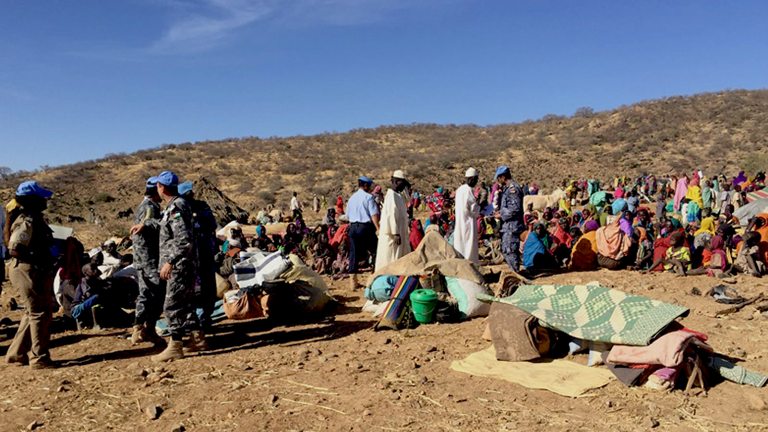UNAMID reduction leaves Darfur civilians without protection: HRW

June 15, 2017 (KHARTOUM) – Human Rights Watch (HRW) has joined voices saying that the planned reduction of peacekeepers in Darfur may leave civilians without protection pointing to the absence of a lasting peace agreement.
The African Union and the United Nations are set to drastically drawdown the hybrid peacekeeping force (UNAMID) by withdrawing the military personnel by 44% and that of the police component by 30%, the closure of 11 team sites in the first phase and the withdrawal of the military component from another 7 team sites in the second phase.
Regional and international officials agree that the improvement of the security situation is the result of the Doha Document for Peace in Darfur (DDPD) and the defeat of holdout groups that refuse to join the framework agreement admitting that the situation in Jebel Marra requires some consideration.
“The planned cuts reflect a false narrative about Darfur’s war ending,” said Daniel Bekele, senior director for Africa advocacy at Human Rights Watch.
“There is no reason to believe that government attacks on civilians and other abuses have ended since the same security forces remain in place; they have never been prosecuted for their crimes and can’t be relied on to protect civilians,” Bekele further said alluding to the omnipotent militia of the Rapid Support Forces (RSF) that the government has empowered to hunt the rebels.
There are over 2.7 million displaced persons according to the UN agencies and 1.8 million according to the government. The IDPs who reside in different camps across the region remain vulnerable to the RSF attacks whenever rebels launch an attack in their area.
The joint AU-UN strategic review team, which decided to change the UNAMID mandate from peacekeeping to peacebuilding, concluded to maintain some troops deployed in Jebel Marra to protect civilians. The decision was motivated by the presence in the mountainous area of an armed group led by the exiled rebel leader Abdel Wahid al-Nur who refuses to join the peace process or to declare a unilateral cessation of hostilities.
For the other states in Darfur region, the joint assessment team said the situation is calm but however decided to focus on the tribal clashes.
HRW pointed to the need to focus on the human rights saying the UN Security Council should make it a priority, adding that the UNAMID human rights division has a 43 percent vacancy rate and no staff in Khartoum since 2014, due to the government’s restrictions and refusal to grant visas.
“The Security Council should urge the mission, which has not issued any public human rights reports in the last year and which has been accused of covering up abuses in the past, to resume public reporting so that council members have regular updates on the situation on the ground,” stressed the rights group.
The UN Security Council is expected to adopt this resolution on 27 June while the African Union Peace and Security Council has already endorsed its decision on 12 June.
(ST)
